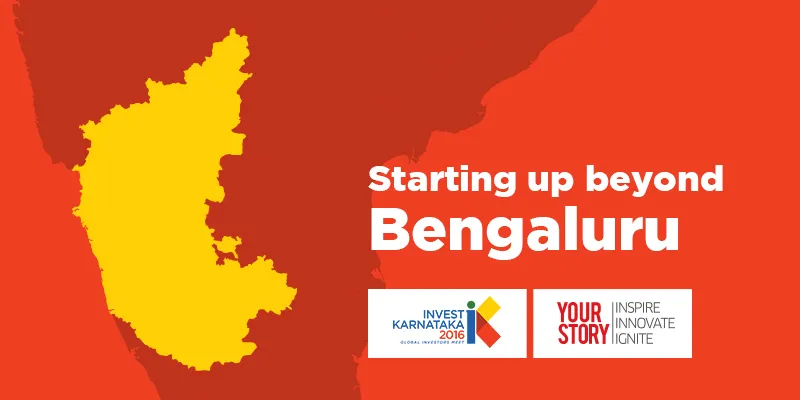Startups in Karnataka go beyond Bengaluru
"While entrepreneurship and startups are synonymous with Bengaluru, it is heartening to see not only the right mix of talent and resources, but also to have the support of the government, " said Rishikesh Krishnan, Director IIM B, while speaking at Invest Karnataka 2016.
With startups like Navya Biotechnologies from Hubli, SenseGiz from Dharwad, Implantaire from Mysore and Team Indus from Bengaluru pitching at the event, the government is ensuring that the growth of startups in the state goes beyond Bengaluru.

The startups from across Karnataka
From setting up startup warehouses, incubation initiatives, mobile incubators, IoT labs, and biotech to cluster bio-innovation centres with 40,000 sq ft area wet labs, V Manjula, Principal Secretary, stated that the government is not only looking at digital development, but also significantly helping manufacturing startups.
Yogesh Dubey, CEO Implantaire, adds that while private equity firms and venture funds weren't looking at Tier II cities. Adding to this Abhishek Latte, Founder & CEO at SenseGiz, Inc., says that if the government wouldn't have helped them, they wouldn't have got any initial funds or support.
"We want to create a world-class ecosystem even in Tier II cities. This is the focus to mobilise funds for startups. We also have a strong mandate for social innovation to build social impact, " adds Manjula.
No better time than now for startups
With incubation centres, startup policies from the Government of India, and a growing focus on helping SMEs, India now is at the peak of startup innovation and growth.
Ankita Vashishta, Founder, Saga Funds adds that while the number of startups in Bengaluru is increasing, she unfortunately sees several me-too startups cropping up.
Also, with the growing focus on startups, the state has also reserved 10 per cent of the funds and benefits for women entrepreneurs. Ankita is hopeful that with government support, more women entrepreneurs will flourish.
While the startup policy looks helpful and progressive, the focus of the ecosystem needs to move towards startups in product and innovation.
With the state’s startup policy, and focus on startups from Tier II cities, the ecosystem is hopeful to see more innovative startups from this section.







